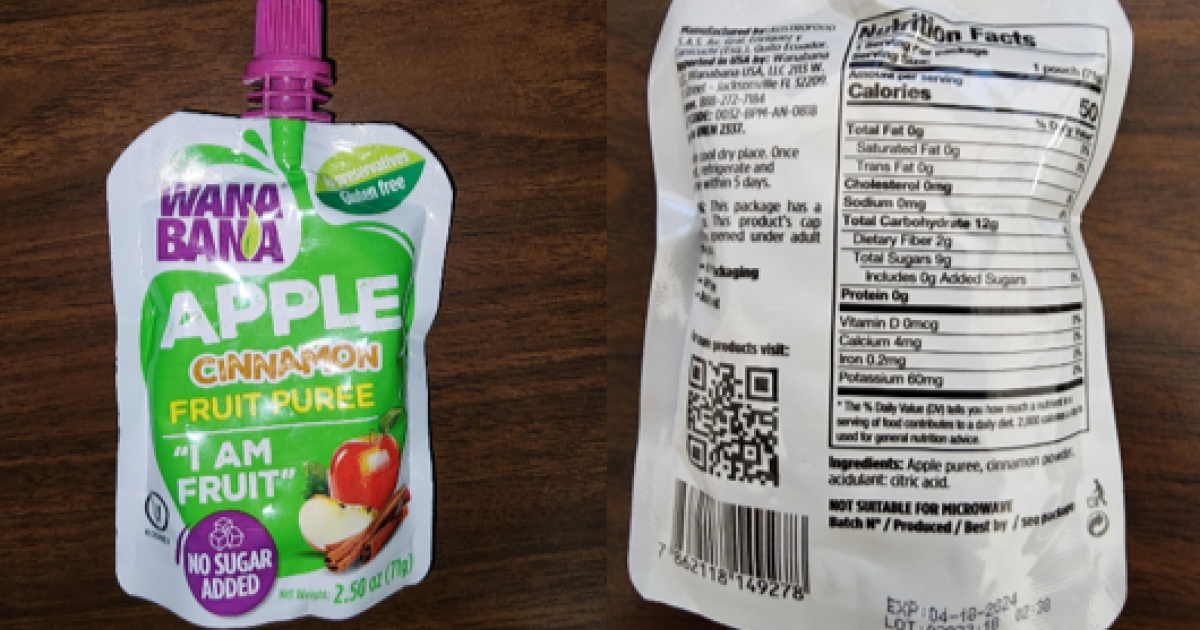The FDA is urging parents who have fed their children WanaBana apple cinnamon fruit puree to get blood tests, as the product may contain elevated levels of lead. WanaBana has issued a voluntary recall of the pouches, which are sold at several retailers – including Amazon and Sam’s Club – the FDA said in a recall alert on Saturday.
The recall affects all lot codes and expiration dates, according to the FDA. Elevated levels of lead, which is toxic to all humans but could be hard to detect in children, may be found in the apple cinnamon variety, according to the alert, and the FDA says to stop buying or eating this flavor.
Children who are exposed to lead might not have any immediate symptoms and the only way to diagnose lead exposure is through clinical testing. However, children may exhibit some symptoms, including abdominal pain and colic, headache, vomiting and anemia.
WanaBana via FDA
Longer-term symptoms may include irritability, fatigue, constipation, difficulty concentrating, tremors and weight loss, among others, according to the FDA.
The potential lead contamination was first discovered by The North Carolina Department of Health and Human Services and the North Carolina Department of Agriculture and Consumer Services. Four children in the state showed elevated blood lead levels and the health department identified WanaBana apple cinnamon fruit puree as the potential source by analyzing the snack and detecting “extremely high concentrations of lead,” according to the FDA.
The FDA said this level of lead could result in acute toxicity, or adverse effects following ingestion. The FDA analyzed the findings and shared them with WanaBana, which they said is cooperating with the recall.
WanaBana sells several flavors of their puree pouches as well as other products such as tea. CBS News has reached out to the company for more information and is awaiting response.
Lead exposure continues to affect children – even though lead-based paint, which was commonly used in homes, was banned by the federal government in 1978 and leaded gasoline for cars has been phased out worldwide. However, lead is still found in pipes across the country. Earlier this year, the EPA found more than 9 million lead pipes supply drinking water throughout the U.S.
About 31 million homes in the U.S. still have hazardous paint on their walls, according to the EPA. And in an effort to completely eliminate lead exposure, the EPA this year lowered its lead dust hazard level to anything greater than zero, according to CBS New York.



